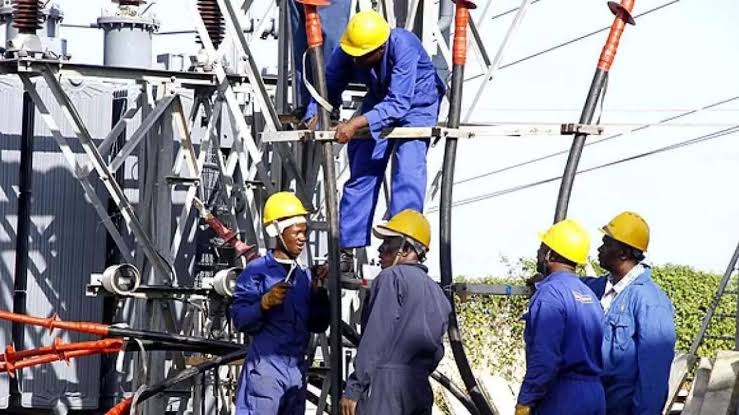Electricity prices will from April increase by up to 78 percent if the energy sector regulator approves new tariffs from Kenya Power that seek to withdraw the monthly subsidy that cushions poor households.
The listed utility firm said it is engaging the Energy and Petroleum Regulatory Authority (EPRA) — the electricity sector regulator — for the first upward review of power prices since 2018, putting further pressure on consumers.

Besides increasing the base tariff, Kenya Power has reduced the threshold for accessing the monthly power subsidy equivalent to a 24.1 percent discount from 100-kilowatt hours to the proposed 30 units.
This will deny millions of households the subsidy they have enjoyed since 2018 as Kenya Power seeks additional resources to upgrade its transmission network and boost profits, which ultimately allow the utility to restart dividends.
Kenya Power wants to increase the cost of a unit of power for the usage of less than 30 kilowatts per month to Sh28.01 a unit, up from the current Sh20.70, reflecting a growth of 35.3 percent.
This is based on assumptions that surcharge levies in power bills like the fuel and forex adjustments remain at January levels.
Those consuming 50-kilowatt hours (kWh) a month, and who bear the biggest brunt of the subsidy withdrawal, will pay Sh36.92 a unit from the current Sh20.70, representing a 78.3 percent jump.
These are homes likely with no plugged gadgets like fridges, TV, cookers, microwaves and electric heaters, key drivers of power use.
“There is a proposal to revise the Life-Line (subsidy) consumption band for both small commercial and domestic customers from the current 100kWh/month to 30kWh/month,” said Kenya Power.
“This will align the objectives of the lifeline/social tariff customer category with the correct social class normally defined by the level of income.”
The utility pointed out that the middle class have been enjoying the subsidy set for poor households.
It expects the higher tariff to apply from April 1 after Epra’s approval.
If implemented, the higher tariffs will hurt household budgets and raise the already high cost of doing business in Kenya.
Kenya Power holds that the higher tariffs are justified because the present electricity prices lapsed in 2019.
In 2018, Epra reduced the retail prices of electricity after an order from then President Uhuru Kenyatta in the wake of widespread complaints from domestic customers and small businesses over a costly tariff introduced the previous July.
The tariff almost doubled the monthly bills for higher-income households, triggering complaints that forced Epra to cut the tariff from November 2018 to July 2019 to Sh10 per kilowatt hour from Sh15.80 for customers who use below 100 kilowatts per month.
The expiry of the temporary tariffs is what is emboldening Kenya Power to push for a review of the tariffs upwards and boost earnings.
The utility firm last paid a dividend in 2017.
If approved, the new prices are likely to derail Kenya’s quest to make energy costs competitive compared with other African nations like Ethiopia, South Africa and Egypt.
The cost of power is a key determinant of new investments.
An increase will hit household budgets hard given that electricity prices are among the expenses that have jumped the most over the past decade.
The law provides that electricity tariffs be reviewed every three years, but the timetable has been erratic as the regulator has often delayed or amended the rates, partly due to the government seeking to ease inflationary pressure on households and industries.
“There is a need to prop up the balance sheet of Kenya Power. The financial health of the company is very important. An investor in the sector would want assurances that the company contracting it would be able to pay up. We wouldn’t want to go the South Africa way,” said a player in the industry.
In her audit of Kenya Power’s books, the Auditor-General indicated the utility remained a going concern in the financial year that ended on June 30, 2022, as it remained in a negative working capital position for the sixth year running.
The company’s current liabilities outstripped current assets by Sh55.7 billion to stand at Sh110.4 billion.
President William Ruto has been against subsidies imposed by his predecessor, Mr Kenyatta, on items like petrol and staple maize flour, terming them unsustainable.
Some of the key challenges the new President faces include bringing down the high cost of fuel and food that have pushed inflation to a five-year high while grappling with subsidy measures that policymakers warn could empty the country’s coffers.
Households consuming 50 units a month will pay Sh1,846 from the current Sh1.035 while homes and businesses using 100 units will part with Sh3,692, up from Sh2,638.
The increase in the cost of electricity will unleash pricing pressure across the economy as producers of services and goods factor in the higher cost of energy.
This will be a blow to consumers who are also grappling with historic-high prices for fuel and food amid the worst drought in 40 years.
Inflation eased to 9.1 percent last month after the drought drove up food prices and energy costs.



















